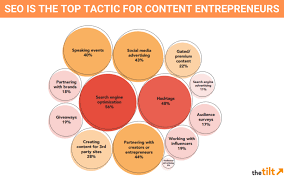Empowering Your Brand: The Impact of a Creative Creation Agency
The Power of Creation Agencies in Building Brands
In today’s competitive business landscape, the role of creation agencies has become increasingly vital in helping companies establish and elevate their brands. These agencies are creative powerhouses that specialise in developing innovative and impactful branding strategies that resonate with target audiences.
Creation agencies bring a unique blend of creativity, strategic thinking, and technical expertise to the table. They work closely with businesses to understand their values, goals, and target market, enabling them to craft compelling brand identities that set companies apart from their competitors.
From logo design and visual branding to content creation and digital marketing campaigns, creation agencies offer a wide range of services that help businesses build a strong and cohesive brand presence across various channels.
One of the key advantages of working with a creation agency is their ability to provide fresh perspectives and innovative ideas that can breathe new life into a brand. By leveraging their creative talent and industry knowledge, these agencies can help businesses stay relevant and engaging in today’s fast-paced market.
Furthermore, creation agencies often have access to cutting-edge tools and technologies that enable them to deliver high-quality work efficiently. This allows businesses to benefit from professional-grade branding solutions without having to invest in expensive resources themselves.
Ultimately, the collaboration between businesses and creation agencies is a partnership built on trust, creativity, and mutual success. By harnessing the power of these creative experts, companies can unlock new opportunities for growth, differentiation, and long-term success in an increasingly competitive business environment.
Eight Essential Tips for Success in a Creative Agency
- Understand your client’s brand and target audience thoroughly.
- Communicate clearly and regularly with clients to ensure alignment on project goals.
- Stay updated on industry trends and best practices in design and marketing.
- Collaborate effectively with team members to leverage diverse skills and perspectives.
- Deliver high-quality work that exceeds client expectations within agreed timelines.
- Seek feedback from clients to continuously improve your services and offerings.
- Maintain a strong online presence through a professional website and active social media profiles.
- Network with other creatives and professionals in the industry to build connections and opportunities.
Understand your client’s brand and target audience thoroughly.
To maximise the impact of your collaboration with a creation agency, it is crucial to thoroughly understand your client’s brand identity and target audience. By gaining deep insights into the essence of the brand and the preferences of its audience, you can ensure that the creative strategies developed by the agency are aligned with the brand’s values and resonate effectively with the target demographic. This understanding forms the foundation for creating compelling and authentic branding initiatives that connect with customers on a meaningful level, driving brand loyalty and engagement.
Communicate clearly and regularly with clients to ensure alignment on project goals.
Clear and consistent communication with clients is essential when working with a creation agency to ensure alignment on project goals. By keeping clients informed at every stage of the process, from initial discussions to project completion, both parties can maintain a shared understanding of objectives, timelines, and expectations. Regular updates and open dialogue help foster collaboration, build trust, and ultimately lead to successful outcomes that meet or exceed client expectations.
Stay updated on industry trends and best practices in design and marketing.
To maximise the effectiveness of working with a creation agency, it is crucial to stay updated on industry trends and best practices in design and marketing. By keeping abreast of the latest developments, businesses can ensure that their brand remains relevant, engaging, and competitive in the ever-evolving market landscape. This proactive approach not only allows companies to leverage cutting-edge strategies and techniques but also fosters a collaborative partnership with the creation agency, leading to innovative solutions that drive brand success.
Collaborate effectively with team members to leverage diverse skills and perspectives.
To maximise the impact of a creation agency, it is crucial to collaborate effectively with team members to leverage their diverse skills and perspectives. By fostering a collaborative environment where team members can share their unique expertise and insights, businesses can benefit from a wealth of creative ideas and innovative solutions. Embracing diversity within the team allows for a more holistic approach to branding strategies, ensuring that every aspect of the brand identity is carefully considered and crafted to resonate with the target audience. Effective collaboration not only enhances the quality of work produced but also fosters a sense of unity and shared purpose among team members, leading to greater success in building strong and memorable brands.
Deliver high-quality work that exceeds client expectations within agreed timelines.
To thrive in the competitive landscape of creation agencies, it is essential to deliver high-quality work that surpasses client expectations while adhering to agreed timelines. By consistently exceeding client expectations, agencies can build trust, loyalty, and a strong reputation in the industry. Timely delivery showcases professionalism and reliability, demonstrating a commitment to client satisfaction and project success. This approach not only enhances the agency’s credibility but also fosters long-term partnerships with clients based on exceptional quality and timely delivery of work.
Seek feedback from clients to continuously improve your services and offerings.
Seeking feedback from clients is a crucial practice for creation agencies looking to continuously improve their services and offerings. By actively listening to client feedback, agencies can gain valuable insights into areas of strength and areas for improvement. This feedback loop not only helps in refining existing services but also in identifying new opportunities to better meet client needs and expectations. Embracing client feedback as a tool for growth and enhancement can lead to stronger client relationships, increased satisfaction, and ultimately, a more successful and competitive agency in the dynamic world of branding and creativity.
Maintain a strong online presence through a professional website and active social media profiles.
To maximise the impact of a creation agency, it is crucial for businesses to uphold a robust online presence by investing in a professional website and maintaining active social media profiles. A well-designed website serves as the digital storefront of a brand, offering visitors a glimpse into its identity and values. By partnering with a creation agency to create an engaging website that reflects the brand’s essence, businesses can enhance their credibility and attract potential customers. Additionally, active participation on social media platforms allows companies to connect with their audience, share valuable content, and build relationships that foster brand loyalty. Consistent branding across all online channels, guided by the expertise of a creation agency, can significantly boost visibility and engagement, ultimately driving business growth.
Network with other creatives and professionals in the industry to build connections and opportunities.
Networking with other creatives and professionals in the industry is a valuable tip when working with a creation agency. Building connections with like-minded individuals not only fosters collaboration and idea-sharing but also opens up new opportunities for growth and success. By engaging with a diverse network of creatives and professionals, businesses can gain fresh perspectives, valuable insights, and potential partnerships that can enhance their brand-building efforts and contribute to long-term success in the competitive market landscape.












